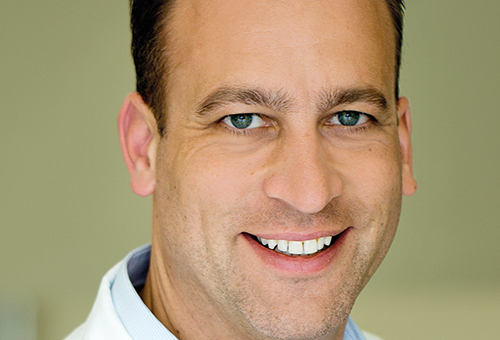
In the pre-planned interim analysis, patients treated with adjuvant nivolumab showed a statistically significant improvement in DFS compared to placebo (HR: 0.69 CI 96.4%: 0.56-0.86 P = 0.0003). The mean follow-up was 24.4 months and the median duration of treatment with nivolumab was 10.1 months. Additionally, 70% of patients had less than 1% of PD-L1 expression. The majority of patients treated with nivolumab were male (84%), white (81%), with ECOG status 0 (58%), phase III disease (66%), adenocarcinoma histology (71%), whose anatomo pathological endpoint was ypN1 or higher (60%).

#CHECKMATE 577 TRIAL#
The primary endpoint of the trial was disease-free survival ( DFS ), while overall survival ( OS ) and the rate of OS at 1, 2, and 3 years were secondary endpoints. The maximum duration of treatment was 1 year.

In total, 794 patients were randomized at a 2:1 ratio to receive nivolumab 240mg (n = 532) or placebo (n = 262), once every 14 days for 16 weeks, followed by 480mg nivolumab or placebo every 4 weeks. At this event, it was presented the first data from CheckMate 577 (NCT02743494), a phase III, randomized, multicenter, double-blind trial evaluating the efficacy and safety of adjuvant nivolumab versus placebo in patients e sophageal or resected g astroesophageal j unction c ancer, whose specimen after trimodal therapy (neoadjuvant chemoradi ation therapy followed by surgery) has residual pathological disease. īetween March 18 th and 19 th, SSO 2021 (International Conference on Surgical Cancer Care) took place in virtual format. The CheckMate -577 trial will continue as planned to allow for future analysis of the secondary endpoint of overall survival (OS).Although trimodal therapy (neoadjuvant chemorad iation therapy followed by surgery) is the current standard, the risk of relapse is high, especially for 70% to 75% of patients who do not achieve a complete pathological response.
#CHECKMATE 577 FULL#
The company will complete a full evaluation of the available CheckMate -577 data and work with investigators to share the results at an upcoming medical conference, as well as discuss them with health authorities. We plan to provide our data to health authorities worldwide with the goal of bringing Opdivo as an adjuvant therapy to these patients with high unmet need.” “The results from CheckMate -577 are immensely important for physicians and patients, and have the potential to establish Opdivo as a new standard of care. Waxman, M.D., development lead, Gastrointestinal Cancers, Bristol Myers Squibb. “Opdivo is the first and only therapy to improve disease-free survival, along with a manageable safety profile, for patients with esophageal or gastroesophageal junction cancer following neoadjuvant chemoradiation therapy and surgery,” said Ian M. For the first time, we have a potential therapeutic option with nivolumab in the adjuvant setting for these patients.” “Medical oncologists have had limited to no treatment options to offer esophageal cancer patients who undergo neoadjuvant chemoradiation therapy followed by surgery and fail to demonstrate a complete pathological response. Sammons Cancer Center at Baylor University Medical Center. Kelly M.D., MBA, Director of the Charles A.

“Approximately 50% of patients with esophageal or gastroesophageal junction cancer who undergo neoadjuvant chemoradiation therapy followed by tumor resection will have disease recurrence within four years, and among those who do not respond completely to neoadjuvant treatment, recurrence will occur sooner,” said Ronan J. This is the second tumor, in addition to melanoma, where Opdivo has demonstrated a benefit in the adjuvant setting. The safety profile of Opdivo was consistent with previously reported studies. In the trial, treatment with Opdivo following neoadjuvant chemoradiation therapy (CRT) and complete surgical resection demonstrated a statistically significant improvement in the primary endpoint of DFS compared to placebo in the all-randomized population.


 0 kommentar(er)
0 kommentar(er)
